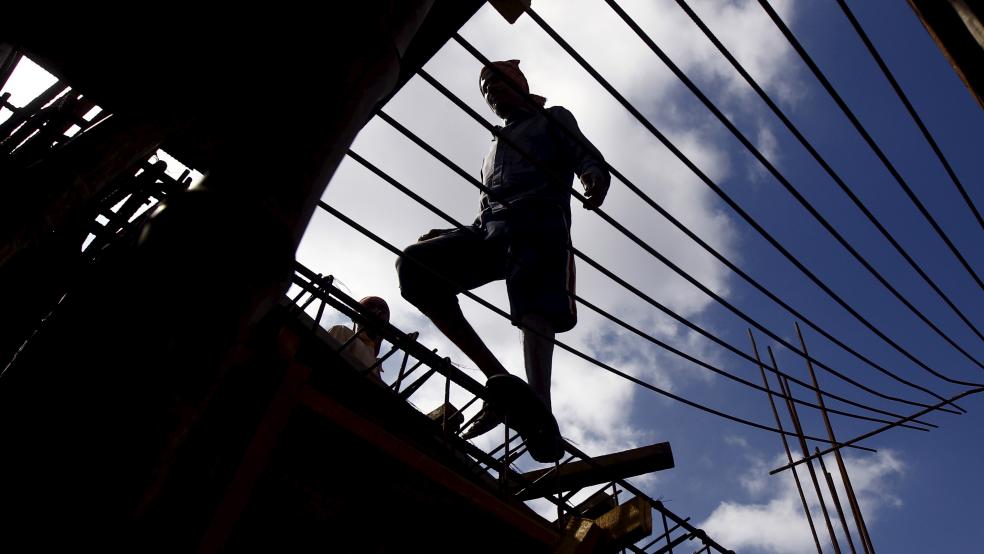NEW DELHI (Reuters) - India's economic growth picked up in July-September, outpacing China on improving domestic demand and manufacturing activity, and the acceleration could persuade the country's central bank to keep interest rates unchanged at its Tuesday meeting.
The Reserve Bank of India is expected to hold rates steady after a sharper-than-expected 50 basis point cut at its last meeting, as it looks to control price rises ahead of a tighter 2016 inflation target.Asia's third-largest economy expanded by a 7.4 percent annual rate in the second quarter of the 2015/16 financial year that ends in March, compared with 7 percent in April-June, the Statistics Ministry said on Monday.China reported annual growth of 6.9 percent for the three months ended Sept. 30.A survey of analysts by Reuters had forecast Indian GDP growth of 7.3 percent for the July-September quarter.Stronger growth would be a boost for Prime Minister Narendra Modi after a defeat in state elections in India's third-most populous state of Bihar.Modi is focusing on reforms to accelerate growth and hopes to convince his opponents to implement a much-delayed national sales tax in 2016."Growth is on a relatively stable path," said Indranil Pan, chief economist at Mumbai-based IDFC Bank. "There will be enablers to improve growth through consumption and low interest rates in the economy."FRONT-LOADED SPENDINGThe economy is not firing on all cylinders, however, and, in the view of some analysts, growth has been driven more by public spending than private consumption.In the second quarter, investments grew 6.8 percent from a year earlier, compared with 4.9 percent in April-June.The government has front-loaded its budget spending, boosting investment in infrastructure to stimulate economic growth and complement private investment.A drought in parts of the country for the second straight year has hurt farm output and rural wages, in turn hitting rural demand for farm machinery like tractors as well as consumer goods.Private consumption growth slowed to 6.8 percent year-on-year in the second quarter from the first quarter's 7.4 percent.A hike of over 23 percent in the incomes of near 10 million government employees and pensioners from January could further boost consumer spending.Although India's headline growth rate looks impressive, it is partly the result of changes to statistical methods that seek to capture more evidence of economic activity.Other barometers such as bank credit growth, jobs and consumer demand paint a less healthy picture, analysts say.WINDFALL GAINWhile most emerging economies, from Brazil to Russia, are struggling amid global headwinds and China's slowdown, India remains a bright spot due to its divergent economy and windfall gains from a plunge in commodity prices.Sharp falls in the cost of oil and gold imports are reducing the trade deficit and giving a net boost to economic activity.Manufacturing, which accounts for about 18 percent of the economy, grew 9.3 percent in the second quarter year-on-year, compared with 7.2 percent in the previous quarter.But exports of goods shrank by 17.5 percent in October from a year ago, the 11th straight monthly decline that prompted the government to extend subsidized credit to exporters.Analysts fear the economy could slow in the next two quarters in the absence of a pick up in private investment, as government spending is expected to be hit by fiscal constraints.India's fiscal deficitIndia's economy outpaces China, central bank seen holding rates

© Rupak De Chowdhuri / Reuters



